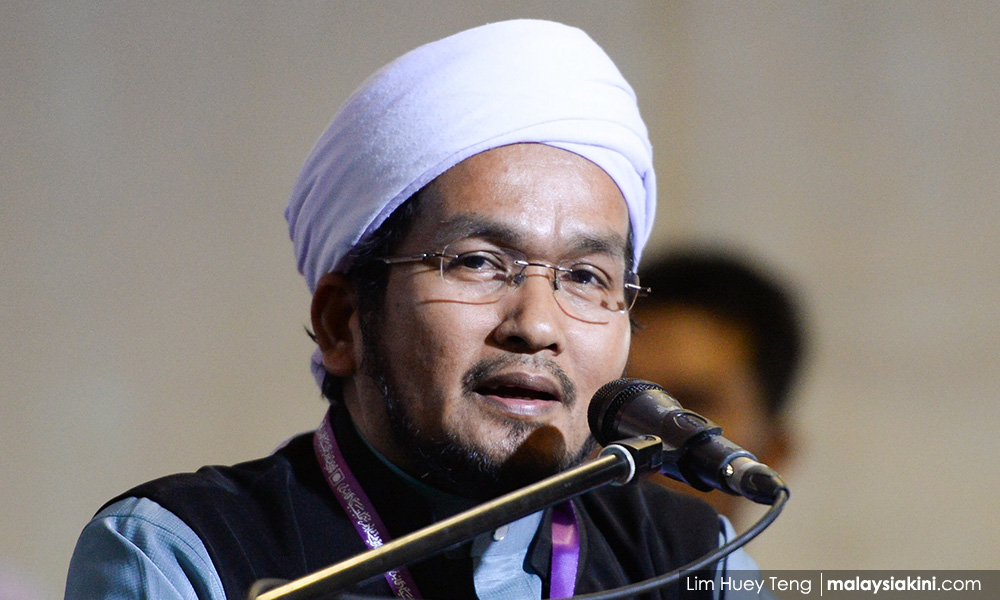
Published by EMIR Research, image from Malaysiakini.
According to the apocalyptic scenarios painted by politicians from both sides of the spectrum, Malaysia is choosing between either becoming a Taliban-like state, ruled by religious extremists, or having a situation where Muslims are oppressed the same way Uighurs are in the Chinese province of Xinjiang.
Is this the kind of false choices that Malaysians want to live with? Unfortunately, while politicians manipulate with the most primitive and primordial motivation – human fear – it is not as easy to revert people’s minds to something constructive.
The beginning of Ramadan this year turned out to be a suitable time for the UMNO-PAS alliance to respond to the comparison suggested by DAP leader Datuk Nga Kor Ming earlier in March that a monoethnic partnership of UMNO and PAS is posing a threat to the whole country as it is resembling Taliban’s religiously conservative and violent nature.
In response, PAS central committee member Mokhtar Senik has cautioned Malaysian Muslims of a fate akin to the Uighur Muslim minority in China, “if political power is given to the ‘kafir’ (infidels), no matter what kind of infidel they are,” as stated in his Facebook post.
As Tun Daim Zainuddin has put it, “there are too many idiots around” who are falling for racial and religious narratives. However, it is unlikely that those who take divisive racist narratives seriously would hear this, immediately consider themselves idiots, and revert to normality. In the same way, Prime Minister that Mahathir Mohammad’s notion that Tunku Ismail of Johor (TMJ) is “a stupid little boy” is unlikely to affect the minds infected with the idea that the incumbent government is neglecting the rights of Malays and sees the outspoken TMJ as a beacon of hope in their struggle. Himpunan 0405, under the banners of rejecting the Rome Statute and supporting TMJ, was a good demonstration that it takes more to change minds.
People carry insecurities and those must be addressed first. The reason why some particular personalities are still seen as more reliable guarantors of people’s rights and freedoms must also be analysed. Of course, the royal institutions have been seen as a more permanent establishment than a troubled government, primarily concerned about staying in power. That is why the power of argument alone is also not enough to form the public opinion on matters like acceding to the Rome Statute.
The worst thing in the story is not even that the public is being manipulated in between, but that it is done by appealing to people’s fear. Fear in this case revives tribal instincts, thus luring people into divisive thinking, a perception of the social welfare pie as a zero-sum game between the tribes, which, in turn, can be defined by religious or ethnic criteria.
Neuroscience has been researching on fear long enough to establish its main features. The natural property of our brain is that fear often bypasses logic. It is designed as a life-saving mechanism, hence generating a “fight or flight” response, depending on the estimation of current capacities. Given that Malaysians share one land, this unconscious zero-sum game logic often transforms rhetoric into a “fight” response towards “the other”, be it by vandalizing temples, harassing on social media or at protesting at public rallies.
Richard Nixon once said, “People react to fear, not love; they don’t teach that in Sunday school, but it’s true”. Yet, Nixon was the one to negotiate between various coalitions in the government to maintain the balance – unlike President Donald Trump, whose populist division-mongering raises eyebrows even here, in Southeast Asia. But when politicians fall for the same ill-willed practices closer to home, they are seen as something more acceptable.
If we rely on Nixon and neuroscience, and accept that fear is a more powerful motivation, it is wiser to think about how political practices can be reoriented to another kind of fear – that Malaysia will cease to exist, torn apart by interracial, inter-religious fighting. It will cease to exist as an attractive tourist destination, as an exemplary harmonious nation, and as a magnet for foreign investment.
Needless to say, fear has a tendency to turn violent. If Malaysian politicians prefer bold analogies nowadays, why does no one recall where the politics of fear, division, and appealling to primitive human instincts brought Nazi Germany? The credit of peaceful coexistence in post-Merdeka Malaysia does not mean the society is vaccinated against violence in future. Especially when the division lines are fluid and so well-manipulated from within.
Let us not be afraid simply of being fooled by politicians. Let us be afraid of the wrecked kind of future this rhetoric about associating political forces at home with extremist policies conducted abroad would bring for Malaysia. There will be only a few that benefit from a short-term gain of power, and the majority will remain in the rubble, looking for a new leader to come and rebuild.
This Ramadan, let’s be afraid of something else already, something like losing the human connection to those next to us or bartering away our rationality for fear.
Julia Roknifard is Director of Foreign Policy at EMIR Research, an independent think-tank focused on strategic policy recommendations based upon rigorous research.

